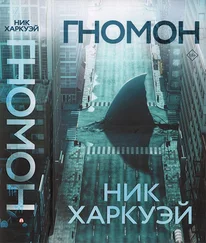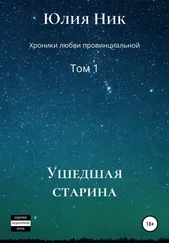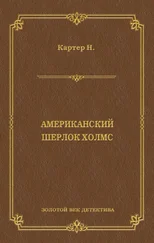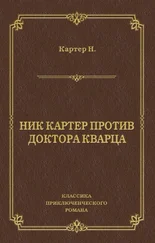He goes to the kitchen and cleans a glass casserole dish, dries it thoroughly, and lifts the impossible heart of the ball into the dish, then covers it with the lid. Then he turns his attention to the rest of the mechanism.
Yes. This he can fix. A weak pin has sheared away, leaving a small arm flapping. It’s a matter of… well… it might take a little longer, actually…
At some point he finishes, and closes his eyes for a quarter of an hour to rest them. Catnapping is a skill everyone should have.
He checks his work and finds it good. The rest of the mechanism is perfect. There isn’t even any dust.
He cleans and oils it anyway, out of respect.
You, who made this: I wish we could have met .
One thing is plain to a hedgehog, as his unlamented father would have had it: this is not your average music box. He should call a newspaper. He should call Harticle’s. He should call his mother—not because of this but just in general.
He doesn’t.
Slowly, he begins to assemble the other pieces of the doodah. They’re splendidly done, but they look brutish and plain now. The puzzle comes together under his hands without effort. After a second, he realises he’s mimicking the patterns of the ball. As above, so below. More elegance.
He’ll have to give the whojimmy back. It wouldn’t be right to separate it from the machine itself. Although if they were to give him a long-term maintenance contract, he could always…
He looks at his task and his tools, and allows his body to work without interference. Now that the puzzle is solved and the tasks are set, he knows how to do this at such a low level it’s important not to think too much. This is the part he loves, the vanishing of self.
When he finishes, he realises how long he has been working, and has to rush.
IV
The True Origin of Vaughn Parry;
the hive;
the flat at Carefor Mews.
Course of irritating stimulation in line with overall strategy,” Billy Friend says, as the train to Wistithiel rolls out of Paddington station only a little tardy, “eight letters.”
Joe Spork is tempted to think that this is not a bad description of his journey with Billy Friend. He shakes his head.
“Billy, where did it come from?”
“Blank, blank, C, et cetera. A gentleman never tells.”
“Billy, this is serious.”
“So am I, Joseph. Client confidences are sacred.” Billy gives a pompous little sniff, as if to say they’re particularly sacred among those people who habitually lie and steal. “If eleven down is ‘London,’ then it ends in ‘l’.”
“I have no idea. I’m terrible with crosswords.”
“Well, so am I, Joseph, but this is how we learn.”
“Billy, just tell me it’s not stolen.”
“It’s not stolen, Joseph.”
“Really?”
“Cross my heart.”
“It’s stolen.”
“Who can ever be entirely sure, Joseph? None of us.”
“Jesus…”
“Keep working on the clue, if you please. Hm. It could be ‘lactose,’ which I believe is a form of sugar found in milk. Well, no, it couldn’t, but it had points of congruence.”
“For God’s sake,” says the woman in the opposite seat, “it’s ‘tactical.’ ‘Tack’ like on a boat, then ‘tickle.’”
“All right, all right,” Billy Friend murmurs, and then, rather waspish, “I notice you haven’t done yours, missus.”
“I set it,” she replies icily. “It’s the easy one today.”
Billy’s eyebrows climb involuntarily up his face, and his mouth turns down at the corners. He goes a bit pink on the top of his head.
“They’re putting Vaughn Parry up for parole next month,” Joe says quickly, because Billy doesn’t stay civil long when he thinks someone’s laughing at him. “Or whatever you call it when it’s medical. They say he’s cured.”
“What, seriously?” Billy looks taken aback. For nearly a year now—since the appalling security-camera footage was obtained by a red-topped newspaper, and Vaughn Parry’s effortless dance of death, liquid and horrible, was shown to a voyeuristically appalled public—he has been hinting that he knew the Fiend of Finsbury as a boy, and can offer unique insights or possibly salacious and horrid gossip about Vaughn Parry, if only someone would ask him. No one has.
“Seriously.”
“Bloody hell. I wouldn’t be on that parole board, I will say.”
“He’s hardly going to come at them across the courtroom, is he?”
“Oh, no. No, not like that. But what they’re going to see, Joseph, I mean, I’ve no idea. Except I can sort of guess, I can imagine, and I’d rather not. I think you could go mad yourself, sitting on that bench. I wonder if that ever happens.”
“Perhaps they get counselling and so on.”
“Fat lot of use that would be. Some things, once you know them, Joe, nothing’s quite the same again. Things you see and do, they make you what you are. Seeing inside Vaughn, well.”
“Did you really know him?”
“Met him, yes. Know him… no. Thank God, Joe, and I don’t believe, as you are aware, but when I think of Vaughn I thank God in the most genuine terms, that I did not know him in any real way.”
“What happened? I mean, how did you meet?”
“It’s a bit… well. It’s unpleasant, is what it is. It’s not nice stuff, Joseph.” Billy looks down at his hands. He brushes something off the palm of the left one, and fiddles with his fingernails.
“If you don’t want to, Billy, that’s fine. We can talk about something else.”
“No, it’s all right. It’s just more of a chat for the pub, you know. Cosy corner, after a couple of glasses, not in front of strangers.” He glances around, and the other occupants of the carriage studiously do whatever they are doing a bit more obviously. Joe shrugs.
“Let’s walk, then. Get a packet of crisps or something.”
The huffy woman tosses the sports section of her paper onto Billy’s chair as they leave.
Billy Friend lights a cigarette and leans out of the window, next to the sign forbidding smoking and above the one which cautions against putting your hands or head outside the train while it’s in motion. He draws hard, sucking against the wind, and turns back to Joe. It’s surprisingly dark here, at the junction between their carriage and the next, and the gloomy overhead light makes him look ancient and craggy, with deep black pouches under his eyes and lines like scars running from the corners of his mouth. He waves his hand, up and down, to get himself started.
“There’s families, Joseph, right? In the Waiting game, I mean. There’s the Ascots, been doing it since King James, and the Godrics since the Norman conquest and before. My lot started out when Victoria was new. The Alleyns reckon they’ve been at it since Caesar, and most likely they have. And each of them has his own daft way of doing it, embalming and making up and laying out, right? Secrets of the trade, and that. And the thing you have to understand is the differences are mostly crap. It all comes to the same thing. But part of the service is giving a sense that maybe it’s not too late to show some kindness or some heart, right, even if you never did give a fig for the dead while they was still alive, or if they never gave a fig for you, because let’s face it, as great a proportion of the dead are arseholes as the living. It stands to reason, although you won’t find many funerals begin with ‘he was a total pain in the neck and only half as clever as he thought, so let’s put him in the ground and have a pint, and good riddance.’ I’ve always thought that would have a certain charm, myself.
Читать дальше
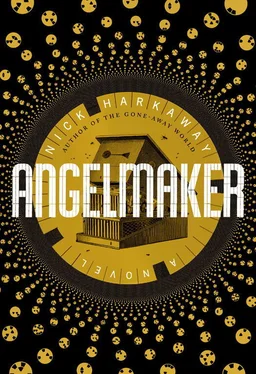

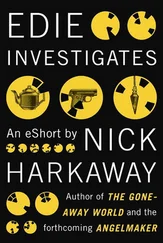
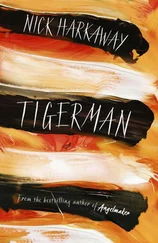
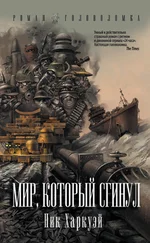
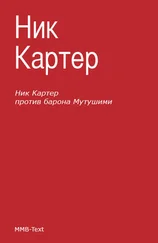
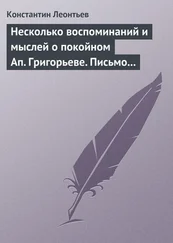

![Ник Харкуэй - Гномон [litres]](/books/400023/nik-harkuej-gnomon-litres-thumb.webp)
